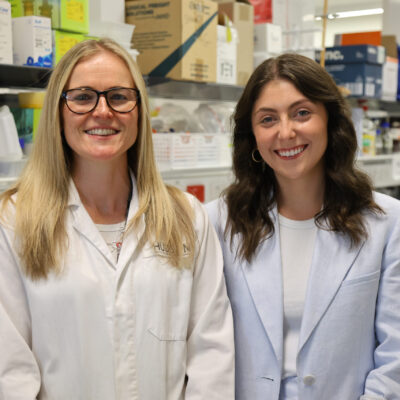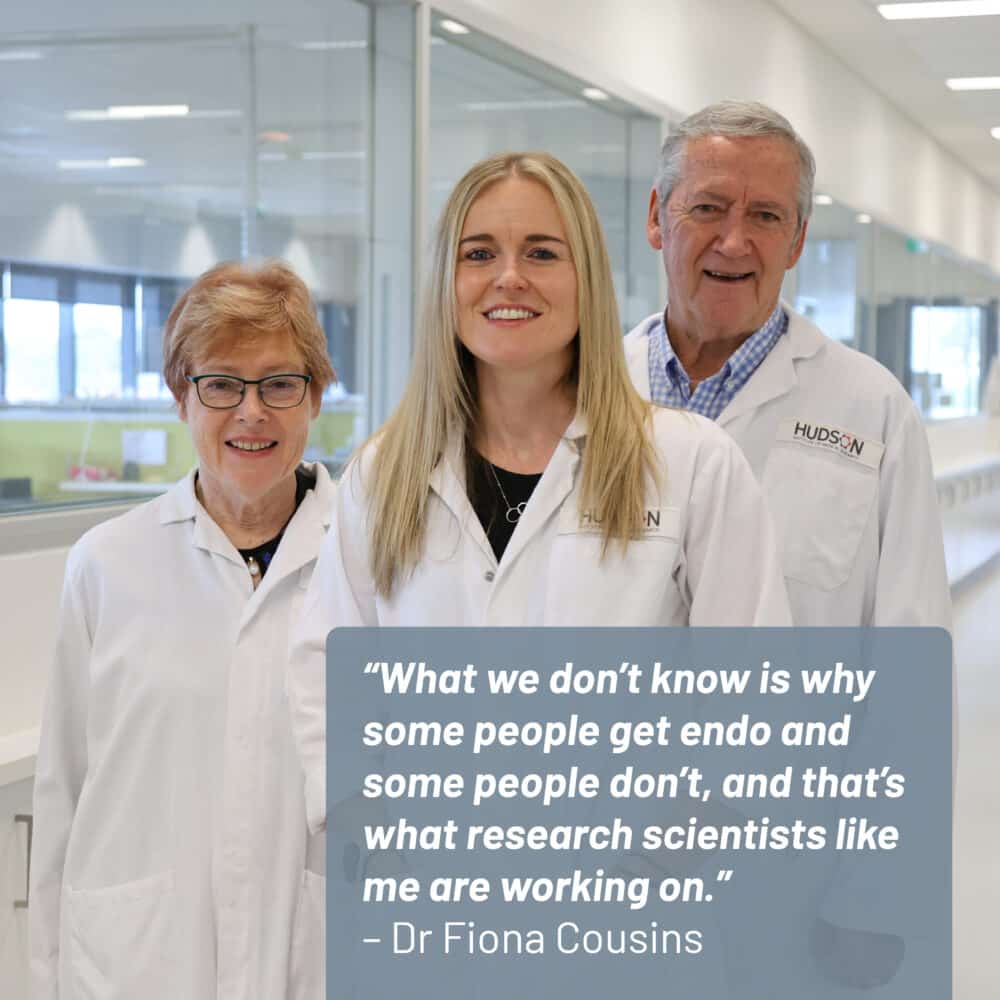Finding the source of the body’s protection against STIs
By Rob Clancy, staff writer. Reviewed by Professor Paul Hertzog

The body’s first line of defence against infection is now better understood, with researchers at Hudson Institute identifying a source of the immune system’s protection against STIs (sexually transmitted infections).
Professor Paul Hertzog led an international team in establishing for the first time where and when in the female reproductive tract a novel protein called interferon epsilon is made.
Their research – carried out at Hudson Institute by Trinity College, Dublin-based researcher Dr Nollaig Bourke – has been published in the journal JCI Insight by the American Society of Clinical Investigation.
Protection against STIs and other infections
Interferon epsilon (IFNe) is important in the body’s natural response in protecting from infections, such as HSV (the herpes virus), Chlamydia, HIV and Zika virus.
The importance of this discovery is reflected by the decision of the Bill and Melinda Gates Foundation to fund this investigation into the hormonal regulation of IFNe, which might extend to certain formulations of oral contraceptives that could regulate host immunity to infections like HIV .
Prof Hertzog said establishing where and when this protein is created is a significant step.
“We have discovered a key element in the puzzle of how interferon epsilon generates protective immunity,” Prof Hertzog said.
“We found that IFNe is expressed in the epithelial cells, where the infections arise, and not in the immune cells like other IFN’s.”
Key component of the body’s protective immunity
“Hence they are ideally located to be a key component of the body’s protective immunity against STIs,” Prof Hertzog said.
Interestingly, it is in these same cells where cancers arise.
“It’s important to know where IFNe is or isn’t made and how it is modulated by the hormones estrogen and progesterone.
“Knowing where it is normally produced is critical to understanding how infectious diseases progress and how best to treat them.” he said
Collaborators | Nollaig Bourke, Trinity College Dublin; Sharon Achilles, University of Pittsburgh, Pittsburgh, USA; Sam Mesiano, Department of Obstetrics and Gynecology, and Dept of Reproductive Biology, Case Western Reserve University, Cleveland, USA
This research was supported by | Bill and Melinda Gates Foundation; NHMRC
Journal | JCI Insight
Title | Spatiotemporal regulation of human IFN-ε and innate immunity in the female reproductive tract
In this article
About Hudson Institute
Hudson Institute’ s research programs deliver in five areas of medical need – inflammation, cancer, reproductive health, newborn health, and hormones and health. More
Hudson News
Get the inside view on discoveries and patient stories
“Thank you Hudson Institute researchers. Your work brings such hope to all women with ovarian cancer knowing that potentially women in the future won't have to go through what we have!”




